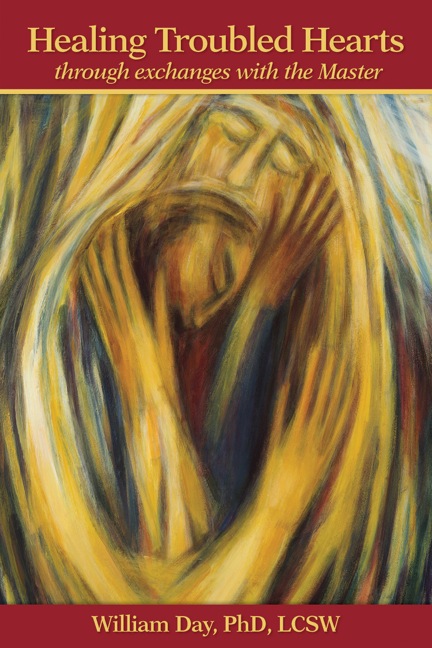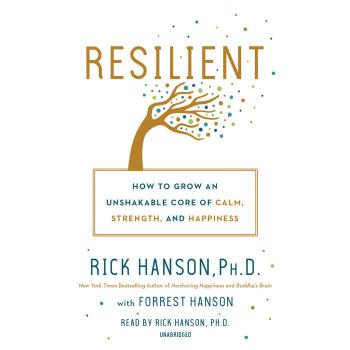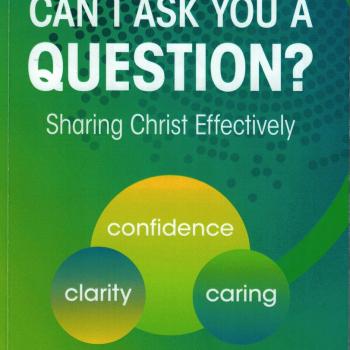Healing Troubled Hearts by Bill Day
UPDATE: In response to this review, Bill Day included the following comment to clarify the method he uses. I am grateful for this helpful note.
TPM was only the beginning. As I chronicled, HeartSync, the Immanuel approach, and the spiritual formation principles of the Life Model folks were also formative forces of my very eclectic approach. Also, as indicated in Chapter 10, and beyond, 2 Corinthians 5:17-21 is the real heart of the Inner Healing ministry I facilitate. The Reconciliation-exchanges that the Holy Spirit accomplishes in those who are willing far exceed any particular method I learned at the hands of human mentors.
Healing Troubled Hearts by Bill Day is a book about a New Age counselor who converted to Christianity for healing and freedom and became a Christian counselor. Along the way, he shares his experience how Jesus healed him of his addictions and helped him to share healing with other.
Day was raised a Catholic, but soon devoted himself to other ideas (14):
I had replaced the religion of Christianity with the religion of psychology (though at the time I did not think of it as a religion); through drugs my mind had been altered and my perceptions were being “cleansed”; and my racist and sexist prejudices had been exposed and deleted, or so I thought. To complete this version of out-with-the-old-and-in-with-the-new, my marriage ended after less than two years and no children. Promiscuity filled that empty space, and I thought of the new relationships as just more positive steps toward self-realization.
He soon realized his need for Jesus Christ (28) – or soul-surgery as he called it:
Up to this point, in the early 1990s, I had neither the understanding nor the skill to remove old interpretations and beliefs. I didn’t realize it but soul-surgery was needed, not palliative care.
However, he had trouble finding help elsewhere until he met Jesus Christ (28-29):
But I had not yet met a Christian counselor or pastor who had expertise in spiritual-surgery. The truth was right there but I didn’t see it: Didn’t Jesus remove the old and replace it with the new? He did not shove anything aside, He replaced it, He made it new—a new creation. Wasn’t the mission of Jesus to substitute, to replace, to exchange at the deepest levels of our being? Didn’t Jesus tell us that the Holy Spirit would be directly involved in showing us all truth?
Day believes that right belief will create right behavior. On this the Bible agrees. After exploring how the Bible gives inner healing, Day turned to the teachings of Theophostic Prayer Ministry as the basis for his Christian counseling ministry. It’s website claims to be a Christian ministry. Yet, the ministry has its critics.
Day shares what he believes inner healing is not (99-107):
1. Inner Healing is not a form of healing that arises out of a oneness view of reality.
2. Inner Healing is not involved with an impersonal deity.
3. Inner Healing is not solely a transformation of consciousness.
4. Inner Healing is not conducted within an undifferentiated moral order.
5. Inner Healing does not focus on wounds to the exclusion of dealing with sin.
6. Inner Healing does not stay stuck in the past, instead of dealing with present problems.
7. Inner Healing does not employ the use of hypnosis, hypnotherapy or self-hypnosis.
8. Inner Healing is not Freudian Abreaction.
9. Inner Healing is not Jungian Active Imagination
10. Inner Healing is not guided imagery or guided visualization.
Following this list, Day deals with the problem of addiction. He defines addiction as “the creation of a relationship of slave and master” (189) is spot-on. His explanation that improper attachment during childhood leads to addiction problems in adulthood is well-founded (189-194).
I was skeptical about this book at first. However, for some people, this may be a helpful resource. Day’s personal experience helps to give him credibility to his methods. TPM may be a ministry for some churches who do not want to use the “Celebrate Recovery” model for overcoming addictions. You can check Day’s website for more information.
#SpeakeasyHealingTroubledHearts
Disclosure of Material Connection: I received this book free from the author and/or publisher through the Speakeasy blogging book review network. I was not required to write a positive review. The opinions I have expressed are my own. I am disclosing this in accordance with the Federal Trade Commission’s 16 CFR,Part 255.













